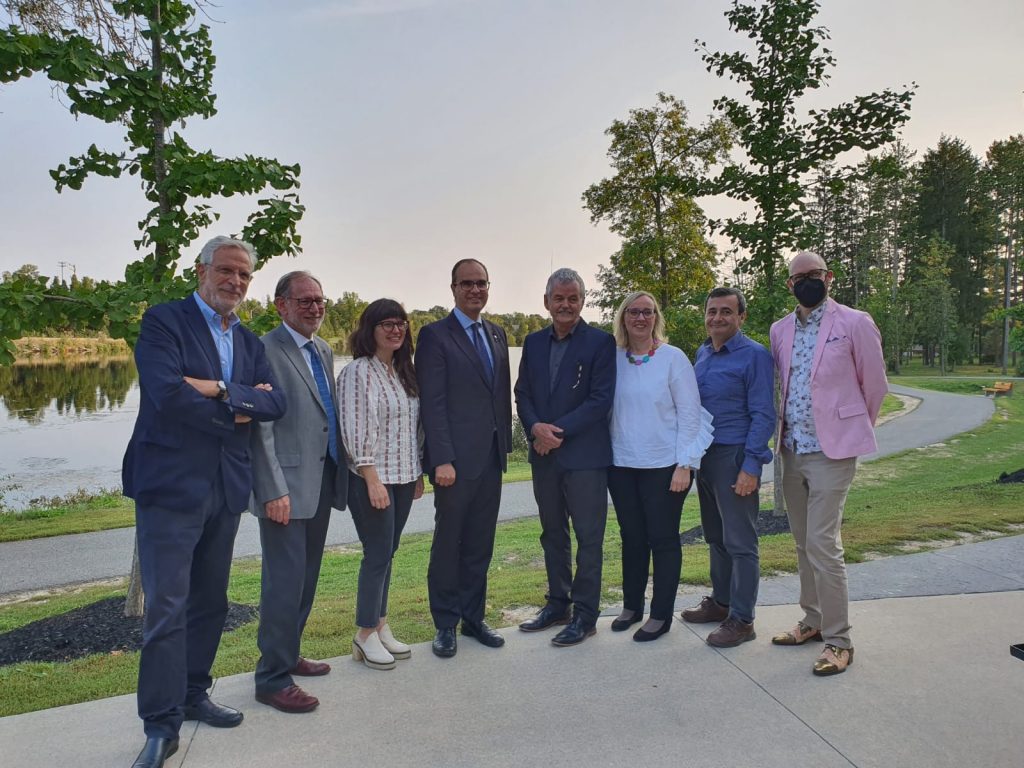19/09/2022
The first virtual museum of the Spanish Civil War opens its doors
URV professor Joan Maria Thomàs participates in this international project, which aims to raise awareness of the military conflict and its impact

URV professor Joan Maria Thomàs participates in this international project, which aims to raise awareness of the military conflict and its impact
An international team of historians, archaeologists, humanities experts and academics has created the first virtual museum of the Spanish Civil War. Financed by Canadian research funds, this initiative was launched in response to the lack of a physical museum dedicated to the Civil War in Spain. The aim of the project is to facilitate access to knowledge about the conflict. Joan Maria Thomàs, full professor of Contemporary History at the URV and co-author of the project, frames the value of the initiative within the context of digital communication while asserting that users cannot always enjoy the benefit of first-hand information prepared by a team of experts in the field.
However, this is the case with the Virtual Museum of the Spanish Civil War – the first virtual museum on the conflict that shook Spain and the world between 1936 and 1939. The Museum, which is free to access, takes the form of five online galleries consisting of 130 images accompanied by texts that, concisely but rigorously, explain the development of the conflict from the military perspective, the experiences of those behind the lines, the impact of the war on the world, and its effects on the lives of ordinary people and historical memory.
Thomàs maintains that one of the project’s great challenges was selecting the images and, especially, acquiring the permissions needed to display them since many are subject to copyright. He also explains that the museum has an open approach and that it intends to incorporate new collaborators, new objects and new rooms. It will also extend its current collaborations with other national and international museums and memorials, such as the Centre Documental de Memòria Històrica (Documentary Centre of Historical Memory), the Memorial Democràtic de la Generalitat de Catalunya (Democratic Memorial of the Generalitat of Catalonia), and the Museu de la Pau de Guernica (Gernika Peace Museum). These collaborations will enable researchers to access archives, databases and other digital sources in order to increase the public’s awareness of this knowledge and these testimonies of enormous historical value.

The museum is currently presented in English and Spanish but it is expected to be translated into the other official languages spoken in Spain as well as into French. Its developers – the full professors in Contemporary History Adrian Shubert (of York University, Canada), Antonio Cazorla-Sánchez (of Trent University, Canada), and Joan Maria Thomàs (of the URV and the ISOCAC History, Society, Politics and Culture from Catalonia to the World consolidated research group); the archaeologist and professor Alfredo González Ruibal of the CSIC (Spanish National Research Council); the full professor of Cultural Studies at Warwick University in the United Kingdom Alison Ribeiro de Menezes, with technical support from Andrea Davis, a lecturer at Arkansas State University, and Dwayne Collins, a librarian at Trent University specialising in digital humanities – invite members of the public to visit the Virtual Museum and to participate with their objects and stories to help enrich and expand the Museum’s collection.
